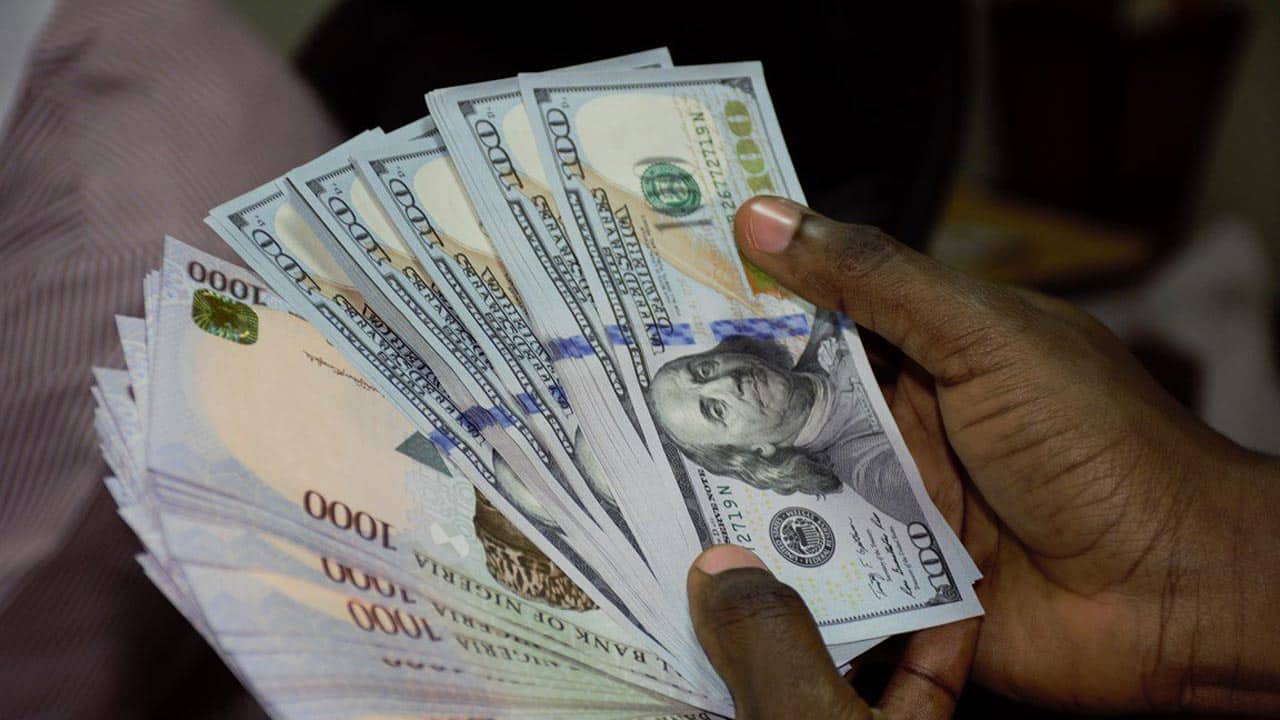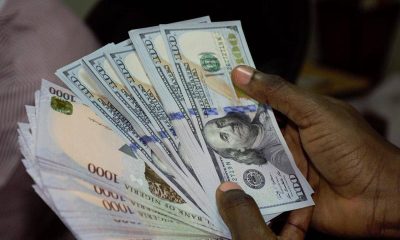Business
Naira Weakens At Official Market, Banks Sell $584 Million

The Nigerian foreign exchange market witnessed a substantial increase in transaction volume, with the total value soaring to $584 million, as reported by the FMDQ Exchange on Tuesday.
This marked a significant rise from the $440 million daily transactions previously seen on the Nigeria Autonomous Foreign Exchange Market (NAFEX), highlighting an enhanced liquidity in the official forex market.
This uptick in forex transactions occurs concurrently with a depreciation of the Nigerian Naira against the United States dollar.
The exchange rate at the official market deteriorated, closing at N1433 to a dollar on Tuesday, a decline from the N1419 to a dollar recorded on Monday.
Further data from the FMDQ Security Exchange indicated a remarkable increase in forex turnover, reaching $584.53 million on Tuesday, up from $440.13 million on Monday.
This translates to a notable increase of $144.4 million or 32.8 percent, suggesting a positive shift towards improved market liquidity.
The surge in forex market activity follows concerted efforts by the Central Bank of Nigeria (CBN) to stabilize the foreign exchange rate amidst economic pressures.
The CBN has been proactive in implementing measures aimed at enhancing liquidity in the forex market.
These measures include not only interventions in the forex market but also regulatory directives aimed at financial institutions.
In addition to commercial banks, other significant contributors to the dollar supply in the NAFEX include the CBN itself, oil firms, and multinational corporations operating within the country.
The CBN’s recent initiatives have included issuing new circulars and guidelines designed to bolster liquidity and bridge the disparity between the parallel and official forex rates.
One of the apex bank’s most impactful measures last week involved directing banks to adjust their foreign exchange exposures, a move aimed at consolidating market stability and ensuring a more unified exchange rate across different market segments.
These developments are part of broader efforts to manage Nigeria’s economic challenges, particularly in the foreign exchange market, as the country navigates through fluctuating global economic conditions and domestic financial pressures.
In its circular titled, “Harmonisation of Reporting Requirements on Foreign Currency Exposures of Banks”, the apex bank expressed worry over the growing trend of banks holding large foreign currency positions.
It said, “The Central Bank of Nigeria has noted with concern the growth in foreign currency exposures of banks through their Net Open Position. This has created an incentive for banks to hold excess long foreign currency positions, which exposes banks to foreign exchange and other risks.”
The CBN mandated that banks’ NOP must not exceed 20 per cent short or 0 per cent long of the bank’s shareholders’ funds going forward. It gave a February 1, 2024 deadline to those who had exceeded its limit.
In response, the national currency gained thrice at the official market following the adjustments.
The naira closed at ₦1,455.59/$ on Wednesday, 1,445/$ on Thursday, and N1435.53/$ on Friday last week.
After trading on Tuesday, the naira depreciated marginally by 0.85 per cent as the dollar was quoted at ₦1,433.89, stronger than ₦1,421.70 quoted on Monday at the NAFEM market.












